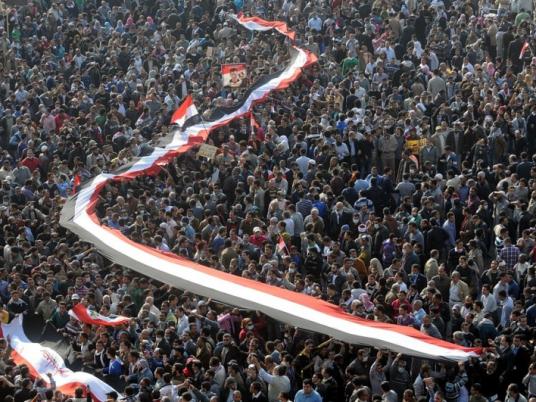A few days ago, I was invited to a meeting for the World Bank’s office in Cairo to discuss a document outlining its transitional strategy for development in Egypt. This document supposedly reflects the World Bank’s priorities in financing the different developmental projects in Egypt. It is usually prepared following consultations with government and non-government entities. Lately, political powers have also been asked to contribute to it.
I attended a session in which representatives from NGOs and civil society organizations working in diverse fields, such as education, technical training, health and women and children’s affairs were present. These organizations focus on providing education, health services and other forms of assistance to marginalized groups and impoverished regions, such Upper Egypt and squatter settlements.
I was stunned by the misery on the faces of the World Bank and the civil society representatives alike. The discussions did not measure up to the gravity of the crisis or the dramatic transformations Egypt is going through one year after the revolution.
The World Bank and its partners were inclined to disregard the 25 January revolution and ensuing changes that impacted the structure of public policies, including education and health. The World Bank put forward its old strategy, with the same partners and mechanisms, even though the context in Egypt has altogether changed.
Likewise, representatives from civil society assumed the role of development “experts,” out of a belief that public policies are the job of technical experts with superior academic degrees and activists with expertise in work with local communities of the poor and illiterate.
They seemed oblivious to the fact that the 25 January revolution has led to the collapse of authoritativeness, which means that public policies should once again be tackled as political issues determined by the interactions of political actors in the society, not a matter to be decided on by internal and external experts from the government and the civil society.
Asked by the head of the World Bank office about the role they envisage for themselves after the election of a new parliament, civil society representatives invariably described themselves as “experts,” saying whoever rises to power in Egypt will solicit the help of experts. They added that civil society organizations have considerable expertise working with the government and marginalized communities across the nation, particularly in Upper Egypt and the countryside.
Perhaps their self-reassuring answer demonstrates a fear for their very existence and future role. They want to reassure themselves that they will be doing the same job in the future — that of facilitating the government’s outreach to the poor and maintaining a partnership with the government.
They appear to be operating under the mindset that their operations will remain untouched by the increasing politicization of Egyptian affairs and the rise of various social groups to demand their social and economic rights as the grip of the police state loosens.
They falsely believe that the poor and the marginalized will stay put until the civil society takes action on their behalf to ask the government and foreign donors to supply them with their needs.
Besides their inability to conceive the major transformations Egypt is undergoing, civil society organizations are also dangerously heedless to the failure of the “state of experts” over more than two decades of authoritative development hegemonized by governmental and international bureaucracies (including the World Bank itself).
Those bureaucracies do not see the people they cater for as capable of expressing their needs through organization and political engagement: They view them as a source of chaos and a menace to sound, rational planning, which only experts are capable of.
Experts have failed, all of them. Perhaps the current outburst of social demands provides adequate proof. The experts had the resources but they have failed to achieve development, with patterns of marginalization exacerbating further.
Some might ask about the role that the World Bank and its civil society organizations should properly play. The World Bank is a financial institution; its primary role is to lend money and to achieve development. It is an institution that should not exercise politics, even though all of its work is translated into policies — how paradoxical!
The World Bank and its governmental and non-governmental partners can continue with their business as usual, but their action will be futile and will not contribute to development.
The World Bank should ask NGOs to act as a liaison between local communities — which have started to organize and express themselves after the revolution — on the one hand and the World Bank on the other. The concept of political freedom should be expanded to enmesh the expression of economic and social demands away from the traditional political venues of political parties, elections and parliaments.
It is high time those organizations, which claim they communicate with deprived communities, allow those communities to speak for themselves as political actors who can influence institutional frameworks and strategies for development.
Translated from Arabic by Dina Zafer




